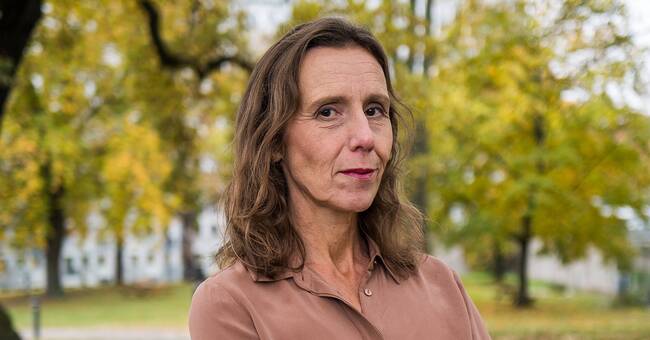"There are almost finished products on the farm."
This description of the situation, at least for me, brings to mind something like "Macken", the old TV series about the garage that two brothers ran with such a low level of ambition that it seemed impossible to repair a single car.
But it is not.
That is the global truck giant Volvo's position description today.
Volvo is one of Sweden's largest companies, and one of the world's largest manufacturers of heavy trucks.
With many decades of experience, and, one must assume, world-class expertise in organizing the manufacture and sale of large, complex products, to the whole world.
The world economy is in the glue
Volvo's interim report today is an almost obscure example of how the world economy is stuck almost two years after the corona virus broke out.
Sales and profit have risen compared with last year's third quarter.
Profitability looks good.
But it could go much better.
Because customers want significantly more trucks than Volvo can deliver.
The lack of semiconductors for all the electronics needed in a truck - and in Volvo's other products, construction machinery, buses and boat engines - has been a problem since the beginning of the year, and no improvement can be seen.
There is transport chaos all over the world because boats, containers and goods are in the wrong places after the normal transport needs and flows have been reversed during the pandemic.
And because no company anywhere since 30 years ago wants a single gadget in stock a single unnecessary hour, because it will be more profitable that way.
If it works as it should.
Forced to say no
The difficulties in obtaining transport mean that a number of components are missing.
In other words, almost finished trucks at Volvo are waiting to be completed and delivered.
How many are unclear, and it was when I asked about it that I got the answer about "almost finished products on the farm".
But the delivery times are longer than usual anyway.
Volvo is forced to decline orders, and has lowered its forecasts for the truck market this year.
In Europe, there will be 10,000 fewer new heavy trucks compared to the previous forecast, and in North America 20,000 fewer.
It is apparently secret what a Volvo truck usually costs, but it is, I would say, about trucks for at least 30 billion that will not be sold this year, in the two markets in total.
Visibility still poor
The problems do not stop there either.
Most of what is lacking has also become more expensive.
Volvo thus has to pay more for transport, raw materials and components, but still does not get the cars together.
The only ones who abound are customers, many I guess quite frustrated as well.
It shows how the shortcomings and bottlenecks can lead to perhaps the biggest threat to the world economy right now: inflation.
It is still much easier for companies that sell to other companies to charge for their increased costs, than for companies that sell to consumers.
But inflation is still alarmingly high.
It may be that the central banks strike with both withdrawn corona support and interest rate hikes earlier than previously thought, which could lead to stock market chaos and recession.
However, it is as difficult to know as it is to know when all the bottlenecks in the economy have passed.
Visibility is still poor, as the Volvo boss said, even today.

